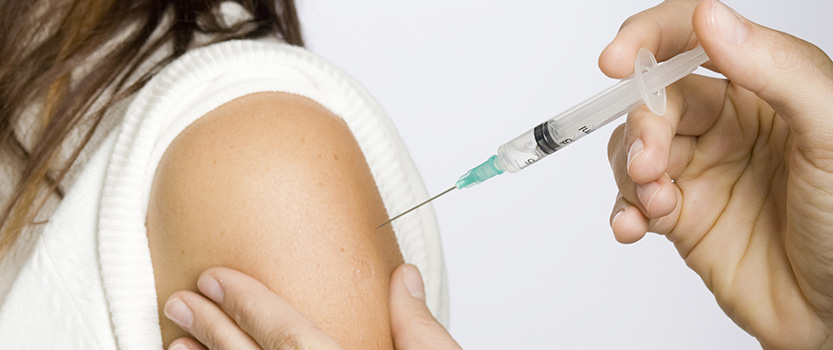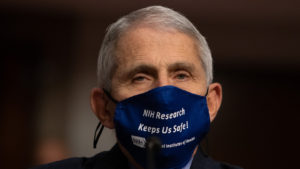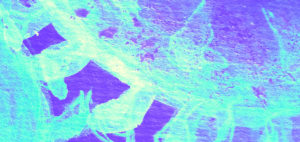Dr. Kenneth Bock’s Alternative Vaccine Schedule

In Paleo Family, we go over the fascinating history of vaccination and recommend that parents investigate each vaccine, its ingredients, and the risk of each disease to determine if their child should receive it. The CDC is fixated on preventing communicable disease—they are not necessarily worried about the adverse side effects that come with that. Parents should know that what they recommend isn’t always in the best interest of every child. And there are alternative vaccine schedules:
Dr. Kenneth Bock offers an alternative vaccine schedule for immunization, spreading out the vaccines over time and delaying some to when they’re needed most.
Hepatitis-B
First dose: shortly before starting day care. If your child does not attend day care, postpone the vaccination until the year before kindergarten.
Second dose: one to two months after the first dose.
Third dose: four to six months after the second.
HIB (Haemophilus influenzae; IPV (Polio); DTaP (Diphtheria, tetanus, pertussis)
HIB:
First dose at four months old.
IPV:
First dose at four months old
DTaP:
First dose at five months old
HIB:
Second dose at six months old
IPV:
Second dose at six months old
DTaP:
Second dose at seven months old
HIB:
Third dose at eight months old
DTap:
Third dose at nine months old
HIB:
Fourth dose at seventeen months old
IPV:
Third dose at seventeen months old
DTaP:
Fourth dose at eighteen months old
DTaP:
Booster at four to five years old
IPV:
Booster at four to five years old
Pneumococcal
One dose, at two years old
Varicella (chicken Pox)
One dose, at four to five years old, if mandated by law, and if your child does not show evidence of immunity to chicken pox on a blood test.
MMR (measles, mumps, rubella)
Vaccinations should be given separately, rather than in one combined injection.
Measles: at fifteen months old
Rubella: at six to twelve months after measles
Mumps: at six to twelve months after rubella.
Boosters given separately: at age four to five. Check titers of measles, mumps, and rubella prior to receiving boosters, and if they show evidence of immunity, you do not need to receive a booster.
General Safety Guidelines for Vaccination
Administer vaccinations only to abundantly healthy children. Postpone the vaccinations if your child is ill, has a fever, was ill within the past week or two, or appears to possibly be coming down with an illness. Any condition that compromises immunity can lead to adverse reactions.
Alternative Vaccination Schedule proposed by Dr. Kenneth Bock:
Be certain your child is not receiving one of the older varieties of vaccinations that contain thimerosal. This is now unlikely to occur, but it has happened. The best way to check on the contents of the vaccine is to look at the package insert that comes with the vaccine.
Also, do not give your child a flu vaccination that contains thimerosal, as many do. The risks outweigh the benefits. Furthermore, if you should happen to be traveling or living abroad at the time of the vaccination, be especially vigilant about not receiving a vaccine containing thimerosal, because many vaccines with thimerosal were sold abroad after their use was discontinued in America.

Try to have all vaccinations administered one at a time, in single-dose vials. This will reduce the risk of overwhelming the immune system.
After the immunization is given, monitor your child carefully for adverse reactions, such as symptoms of a minor illness. If these symptoms occur, contact your doctor immediately, and be especially proactive about helping your child overcome the symptoms, with rest, extra fluids, a healthy diet, and moderate intake of supplements. The symptoms could be an indication that your child is responding unfavorably to the vaccination.
If your child appears to have an adverse reaction to a vaccination, be very cautious about administering further vaccinations. It may be wise to postpone the vaccination until your child is older, and has a more developed immune system.
If your child is experiencing a notable allergic response at the time of the vaccination, such as seasonal allergy, postpone the vaccination until allergic symptoms have cleared.
Do not agree to administration of the hepatisis-B shot on your child’s day of birth, or shortly thereafter. This vaccination is appropriate on the day of birth only when the mother is hepatitis-B-positive.
Do not have your child vaccinated with vaccines that contain substances that your suspect your child may be allergic to, such as yeast in the hepatitis-B vaccination.
If possible, breast feed your infant, to confer added immunity.
Make sure your child’s diet is healthy and rich in nutrients before, during, and after all vaccinations.








